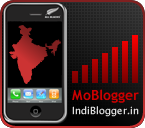I wonder if someday the doctor's waiting room will be a giant MRI device, or whatever technology replaces it, that can scan you, diagnose your problems, and write prescriptions without human intervention.
Imagine that someday you have a tiny chip inside you to monitor your blood chemistry on an ongoing basis.
When you enter the room, the computer recognizes your face and matches it to the identity information on your chip just to be sure. Then the computer reads your blood data from your chip and begins scanning your body.
You don't have to be motionless because the computer is fast enough to compensate for your movements. How about that?
The computer has your entire medical history, along with the genetic information that was taken from your umbilical cord. It also knows your lifestyle because your bank records and your location data (from GPS) are available by law to the medical establishment.
The computer can even scan your Facebook pages and other online sources to see what social situations you've been in lately.
By then, privacy will seem like a quaint custom from our primitive past. Children will learn about it in history class.
The computer then compares all of your information with a vast database about other human beings and looks for anomalies. Based on this information, the computer diagnosis you and prescribes treatment.
At that point, a human nurse might be involved to remove a splinter or apply a bandage. If you need surgery, a robot does the hard part while a human doctor probably just supervises.
In the next stage of healthcare, the MRI-like device shrinks to the size of an airport screening device that fits probably in the doorway of your home, so you get a full and instant physical every time you pass through.
Every problem is diagnosed early.
What part of that future is unlikely in say 50 years?
Can anyone challenge me on that?
Imagine that someday you have a tiny chip inside you to monitor your blood chemistry on an ongoing basis.
When you enter the room, the computer recognizes your face and matches it to the identity information on your chip just to be sure. Then the computer reads your blood data from your chip and begins scanning your body.
You don't have to be motionless because the computer is fast enough to compensate for your movements. How about that?
The computer has your entire medical history, along with the genetic information that was taken from your umbilical cord. It also knows your lifestyle because your bank records and your location data (from GPS) are available by law to the medical establishment.
The computer can even scan your Facebook pages and other online sources to see what social situations you've been in lately.
By then, privacy will seem like a quaint custom from our primitive past. Children will learn about it in history class.
The computer then compares all of your information with a vast database about other human beings and looks for anomalies. Based on this information, the computer diagnosis you and prescribes treatment.
At that point, a human nurse might be involved to remove a splinter or apply a bandage. If you need surgery, a robot does the hard part while a human doctor probably just supervises.
In the next stage of healthcare, the MRI-like device shrinks to the size of an airport screening device that fits probably in the doorway of your home, so you get a full and instant physical every time you pass through.
Every problem is diagnosed early.
What part of that future is unlikely in say 50 years?
Can anyone challenge me on that?










Dec 4, 2010, 6:32:00 AM
Tandarin i am reading ur post but my mind goes way back in time when all that was needed for a correct diagnosis was a warm touch to check the pulse and a close look at our tongues. Sometimes the stethoscope to be more sure.
Surely the time is not far when we could be turned into molecules which is scanned for viruses just like the MRI SCANNER YOU TALK ABOUT and transported by a command like 'Energise' like what we saw in Star Trek.
Your futuristic imagination could see the light of day.
And hey your idea is already in a database now.
And i feel happy that my dost mooted the idea.
After all it is a world of IDEAS. And yours seems like an original one.
Interesting...very interesting :)
Dec 5, 2010, 8:48:00 AM
Yes Shivani, those warm touch days were great and were hands of extremely dedicated practitioners who were born to serve. Those are by far bygone days.
Today the medical specialty, works overtime to fleece the average human who runs from pillar to post to get his piece of mind back as far as health is concerned. It’s your good fortune if you have a friend in the medical field and does consider you a true friend. This field has become totally commercial and hence it’s my grand wish/dream that Engineer’s work overtime to bring in all those equipment with huge data bases collected during last few decades to correctly diagnose and dispense medicines as per an individual’s requirement, taking into consideration genetic background, heredity and allergies.
This post was an eye opener to all youngsters who probably will take up engineering in biotech, bio medicine, nano technology, medical electronics etc. The medical world will swing back into the engineering domain sooner than later. That’s my prediction and hence the bet.
Shivani, its good that I got you thinking too.